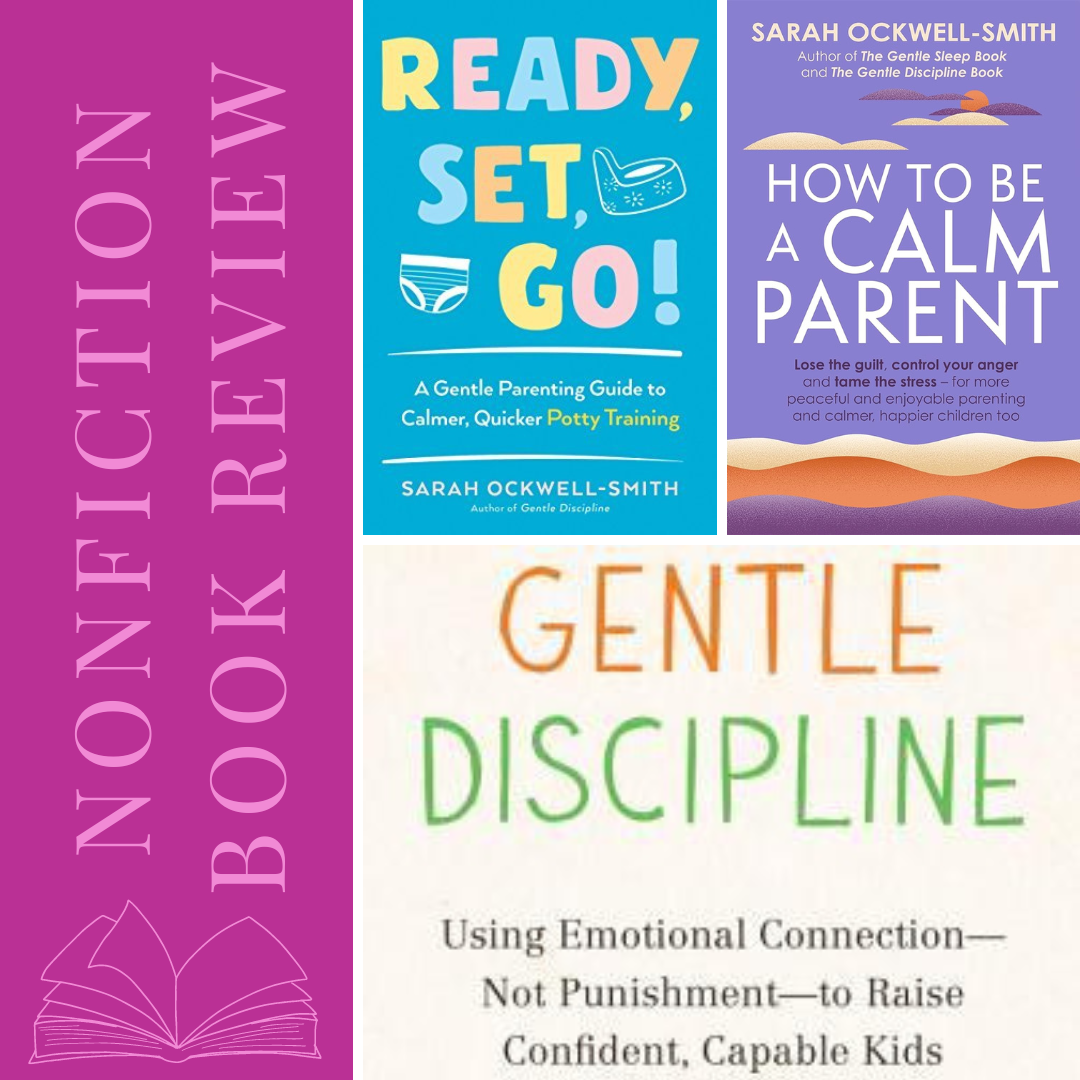As someone who hopes to be a lifelong learner, I enjoy keeping nonfiction on regular rotation in my reading life.
My big picture focus is almost always on living a good life. As a result my nonfiction book choices often relate in that they contain lessons to improve or better my life.
My areas of interest usually have to do with self help or personal development. Whether that’s positive psychology books, parenting guides, or deep dives into nutrition.
In my current reading life, I find it works to focus on one nonfiction book a month.
I try to take a slow and steady approach reading a chapter a day to really absorb the information. Often times that means it takes me 10 days to 2 weeks to finish the book. Sometimes longer.
Nonfiction Reading and Reviews in 2024
Over the years, I’ve experimented in different ways with my nonfiction reading.
Last year I shared my highlights, thoughts, reactions, and questions in an online book club, Pearls of Wisdom, over on Fable. This is still open to the public if you’re interested in any of our 2023 reads.
This year I’m going back to my nonfiction spotlight approach. It’s similar to the way I explored and shared my thoughts back in 2021 for my year of health experiment.
While I enjoy my fable book clubs and buddy reads (my romance book club, A Dose of Romance, is still going strong), I missed the process of sharing an in-depth review of my nonfiction read on the blog.
Writing out my thoughts, feelings, and takeaways from the book helps me work through them. It also solidifies them in my mind to take forward with me.
I find I’m more comfortable being a little bit more vulnerable in this space. That vulnerability is where those nuggets of wisdom from the reading life can move forward into actual life.
January’s Nonfiction Reads: Sarah Ockwell-Smith
In January, I changed things up.
Instead of one book, I read three by Sarah Ockwell-Smith for this spotlight on gentle parenting. Sarah Ockwell-Smith is a British author who writes extensively on authoritative discipline methods or as she calls it gentle discipline.
“Gentle discipline is focused upon teaching and learning, rather than punishing, and having expectations for children’s behavior that are realistic, given their level of brain development. It is also about mutual respect and working with children, not against them. In gentle discipline there is a balance of power; it is not held solely by the parents.”
From the introduction of Gentle Discipline pg. xv
For January’s gentle parenting focus, Ockwell-Smith’s book on potty training, Ready, Set, Go!, was my top priority. We will be in that stage with Mr. O before we know it and I felt so unprepared. I didn’t want to only bring a potty training book to the blog for a nonfiction review though.
Luckily the beginning of the year seemed the perfect time to brush up on gentle parenting. So I decided dig deeper into Sarah Ockwell-Smith’s work.
Her book How to Be a Calm Parent has been sitting in my Audible library for far too long. I can always use more pointers on staying calm.
Since being introduced to gentle parenting through Sarah Ockwell-Smith as well as Dr. Becky Kennedy’s Good Inside parenting approach, I have been doing a lot of work on myself – noticing and trying to unpack and alter certain behaviors. I hoped her focus on the parent rather than parenting in this book would help me continue on that path.
Last year in January I read and loved Ockwell-Smith’s book Gentle Discipline. I bought a physical copy to have on hand for reference. I wanted to annotate it in January while reviewing if I had the time. Which I did!
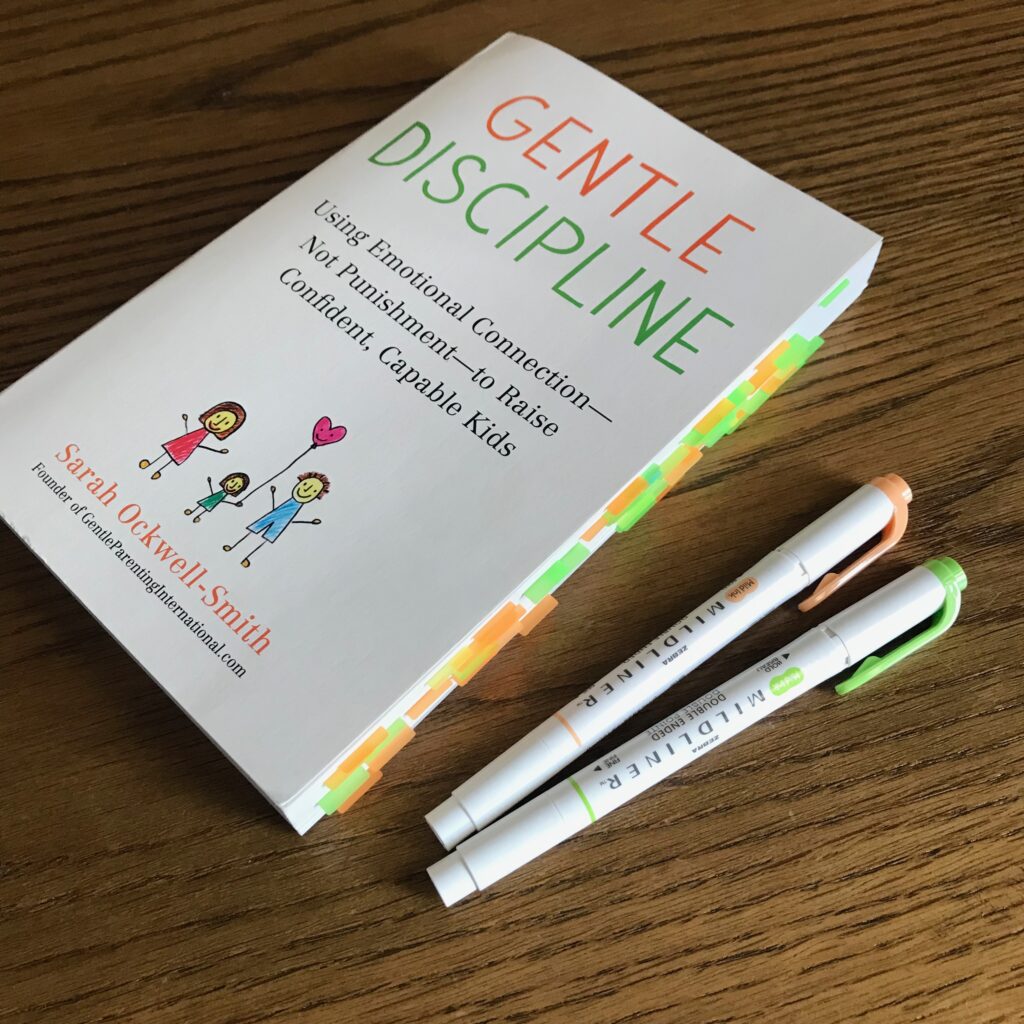
Three Gentle Parenting Books by Sarah Ockwell-Smith
Ready, Set, Go! A Gentle Parenting Guide to Calmer, Quicker Potty Training
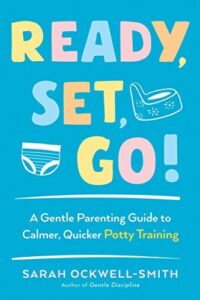
Book Blurb:
“A calmer, simpler approach to potty training
If you’re like most parents, you’re probably feeling pretty nervous about potty training. But don’t worry, help is on the way. This supportive guide provides step-by-step advice for a compassionate and emotionally aware process—one that focuses on positive connection rather than relying on gimmicks, pressure, or rewards (which usually backfire).
Topics include:
- Signs your child is ready, and how to begin
- Preparing your child emotionally
- Tips for coping when away from home
- Advice for handling accidents and setbacks
- Practical stories and tips from parents
Written by popular parenting expert Sarah Ockwell-Smith, creator of Gentle Parenting, this is the only book you’ll need to guide your child through this developmental milestone–without trauma, drama and tears (for child and parents alike!).”
How to Be a Calm Parent: Lose the guilt, control your anger and tame the stress – for more peaceful and enjoyable parenting and calmer, happier children too
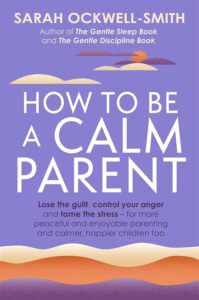
Book Blurb:
“‘This isn’t a parenting advice book, it’s a book about you. The words you read in this book, however, will have a far greater impact on your children, than those contained in any parenting book you could read (and I count my own in that too).’
How many times have you asked yourself ‘what’s wrong with me? Why can’t I stay calm?’. So many of us would love to follow a gentler, more positive style of parenting, but we don’t think we’re cut out for it, because we aren’t naturally calm. We feel that there is something wrong with us, that we’re not good enough. We believe we are failing our children by not controlling our own emotions adequately.
What we don’t realise is that this describes almost every parent there ever was – and ever will be.
In her trademark gentle, supportive and reassuring style, bestselling author Sarah Ockwell-Smith shows that while we all lose it at times, everyone can become a calmer parent. Based on her many years’ experience working with parents, Sarah provides research, advice and practical exercises that will set you on the path to calmer parenting that will benefit both you and your child.
Covering everything from the impact of your own upbringing on your parenting style to work and home life balance and letting go of the quest for perfection to ensuring your own basic needs are met, How to Be a Calm Parent is for any parent who knows that they need to be calmer to raise well adjusted, happy children, but struggles with their own emotions and stress levels.”
Gentle Discipline: Using Emotional Connection–Not Punishment–to Raise Confident, Capable Kids
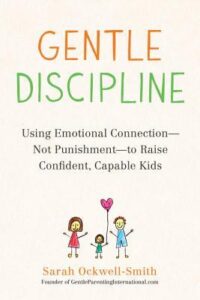
Book Blurb:
“A practical guide that presents an alternative to shouting, shaming, and blaming–to give kids the skills they need to grow and thrive
Discipline is an essential part of raising happy and successful kids, but as more and more parents are discovering, conventional approaches often don’t work, and can even lead to more frustration, resentment, power struggles, and shame.
Enter Sarah Ockwell-Smith, a popular parenting expert who believes there’s a better way. Citing the latest research in child development, psychology and neuroscience, Gentle Discipline debunks common myths about punishments, rewards, the “naughty chair,” and more, and presents practical, connection-based techniques that really work–and that bring parents and kids closer together instead of driving then apart. Topics include:
Setting–and enforcing–boundaries and limits with compassion and respect
Focusing on connection and positivity instead of negative consequences
Working with teachers and other caregivers
Breaking the cycle of shaming and blaming
Filled with ideas to try today, Gentle Discipline helps parents of toddlers as well as school-age kids embrace a new, more enlightened way to help kids listen, learn and grow.”
Review of Books by Sarah Ockwell-Smith
I found all three books by Sarah Ockwell-Smith to be extremely helpful in their own ways. Happily the information, findings, and her approach to gentle parenting was consistent across all three titles as well.
Ready, Set, Go!
Ready, Set, Go! was a 4.5-star read.
Sarah Ockwell-Smith begins by introducing the relevant biological background information. She covers the difference between daytime and nighttime training and at what stage after daytime training, nighttime training might be appropriate. She corrects the myths around potty training and signs of readiness. Instead she focuses on whether the child is old enough to be physically capable and is indicating emotional readiness.
After that she gets into the actual steps of potty training. Having no prior knowledge of potty training or what all it entails, I found the process she described incredibly overwhelming at first.
I quickly came to appreciate the step by step walk through, the resources, and the tips for keeping your home from being destroyed – particularly the floor and furniture. Knowledge is power! With an idea of what to expect and how to prepare, I can stay much calmer and patient.
I wish there had been a bit more information or troubleshooting for knowing when your child is ready. However I also understood that it’s tricky – there isn’t a clear go sign.
There were also a few parts that came across with a judgmental tone, more so than either of her other books.
How to Be a Calm Parent
I gave How to Be a Calm Parent 5 stars.
There is a massive note on my phone with time marks for content in each chapter in hopes that makes the information easier to return to. I plan to purchase a physical copy for my reference shelf. This book is definitely one worth revisiting!
This felt like her most honest and vulnerable book as Sarah Ockwell-Smith shared her own struggles as a parent. I loved all the emphasis on not having to be perfect and giving yourself grace and forgiveness. Everyone will be ok and even the better for mistakes as you model handling these things for your children.
There are so many nuggets of wisdom and strategies to employ moving forward. I’m still thinking about them. I’ll share some in the takeaway section below.
This book gave me a starting place for more nonfiction reading. After journaling about some of the things that came up for me while reading this book, I can better identify the areas where I struggle and would like to improve.
It also clarified my why for this work. Ideally it should be enough to go on this journey for my own sake but my real motivation is being the best parent and role model I can be to my son.
It is well known that kids pick up what they see us do and how we behave, not what we tell them to do instead. If I don’t want him to struggle with the same things I do (anger, perfectionism, self worth, a fear of failure, etc), I have to change.
Gentle Discipline
Gentle Discipline remained at 4.5 stars on the reread. If you’d like to read my original review, you can find it in this recap. I also discussed Gentle Discipline in my 2023 nonfiction roundup where I shared my biggest takeaway from every nonfiction book I read last year.
This book is a great starter for the topic of gentle parenting.
The first five chapters are full of important background information from the true reasons children “misbehave” to the ways kids learn and how their brains physically develop. Sarah Ockwell-Smith also explains what children are developmentally capable of at different ages, why popular discipline methods don’t work, and where school discipline falls into this.
Then she gets into the troubleshooting chapters. Within these she takes a common issue like violent behavior, sibling rivalry, or swearing and attempts to cover how it may manifest within any age group. She focuses on a Why? How? What? framework for addressing the behavior based in understanding, empathy, and a clear objective on what you hope to teach and change.
At the end of each chapter she includes a couple of real life questions from parents along with her advice for them. It is here that I wish she had included more questions and examples. I think one example for roughly each age group would have been really helpful.
Pearls of Wisdom Takeaways from Sarah Ockwell-Smith
Ready, Set, Go!
- When it comes to potty training, I feel much more prepared and confident for when we get to this stage.
- While Mr. O is in the physically appropriate age range to begin (24-30 months), we’re currently waiting for signs of emotional readiness.
- We’ve introduced more potty books – titles I found in the resource list of this book like Potty by Leslie Patricelli and Where’s the Poop by Julie Markes.
- We set up a hand washing station Mr. O can use mostly independently. When talking about germs we try to use the term “unwanted” instead of labels like bad or dirty.
- He says bye pee whenever we flush the toilet.
- We’re continuing to be very mindful of our language around diaper changes and natural bodily functions avoiding any negative or potentially shaming words.
- I’m collecting supplies and ideas for keeping the house and furniture from being too impacted by the bare bottom training days. Accidents are inevitable and can be looked at as a good thing – learning opportunities.
How to Be a Calm Parent
- As I touched on above, this book had a huge impact on me. It made me realize if I don’t want certain cycles to continue with my son I need change the behavior I’m modeling. Our kids pick up what we do, not what we say. For whatever reason that really clicked for me with this book.
- While trying to break the intergenerational cycle of some behaviors, it’s important to empathize with those who came before you. Remember that your own parents and grandparents were doing the best they could with the understanding of child development at the time, the tools they had, and their own inherited baggage.
- I loved her point that busy is not a badge to aim for. The answer is often less not more. That it’s good for kids to be bored.
- The importance of self kindness and her peaceful pentagon framework also stood out to me. We have to be kind to ourselves if we want our kids to grow up to be kind to themselves.
- I’m all for positive affirmations and want to start saying these out loud. Especially in this stage where my son repeats so much of what I say. It might as well be something positive. Some of my favorites were from chapter 2 which deals with perfectionism:
Perfect does not exist.
Good enough is more than enough.
My child needs me to mess up to learn.
Everyone makes mistakes.
- I want to know myself better and notice when I’m reaching my limit or capacity. This would allow me to take a break or get in some self care to create more space within myself for dealing with life stress and the big emotions of others. I also appreciated the idea to at least mention what is going on with you when you’re at capacity and give your child a heads up that you might lose it. Advanced notice helps them know when you get upset it really has nothing to do with them. It can also aid the repair cycle.
- Every parent loses it from time to time. You can’t be a calm parent all the time – be realistic. It is ok. Kids are resilient. When this happens take the steps to heal or repair your relationship. Apologize, share how you’ll do better next, and give a hug or cuddle. Studies show you only have to do things “right” 50% of the time to raise securely attached kids.
Gentle Discipline
- Sarah Ockwell-Smith offers an acronym for making SPACE between your child’s behavior and your reaction. SPACE stands for: Stay calm, Proper expectations, Affinity with your child, Connect and contain emotions, Explain and set a good example.
- The importance of appropriate expectations of your child’s behavior based on their age (cognitive development) and what those are.
- How reward systems and some types of praise are dangerous to the intrinsic motivation of children.
- If you want your child to feel they can come to you with anything, you must react with calmness, respect, and support when they tell you things. Not judgement. There was a lot on this in Chapter 11, Coping with Lying. So much of that chapter was fascinating.
- It’s better to be a good enough parent than a perfect one. The 70/30 rule is trying to be the best parent you can 70% of the time and not worrying about the other 30%. It’s a much more realistic goal, can help you stay in a growth mindset when you screw up, and allows you to model making mistakes for your own children.
- I appreciate the gentle parenting approach from Sarah Ockwell-Smith so much that I’m looking into her toddler specific book so we can go deeper into strategies and issues to expect of the stage we’re currently parenting in. I love that she has books to continue helping more specifically as kids grow and develop.
February’s Nonfiction Reads
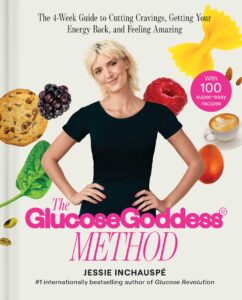
Recently, my friend Ashley over at A Seed for the Soul mentioned an interview with Glucose Goddess, Jessie Inchauspé, that she found helpful and inspiring.
I love learning more about nutrition and the importance of it for our health. I was very intrigued by the interview and immediately wanted to check out Inchauspé’s books.
I’m starting with her newest work, The Glucose Goddess Method: The 4-Week Guide to Cutting Cravings, Getting Your Energy Back, and Feeling Amazing.
Knowing myself though, I’m pretty sure I will want to dig deeper into understanding her approach and the science behind her theory so I’ll likely continue with her first book Glucose Revolution: The Life-Changing Power of Balancing Your Blood Sugar.
I’m excited to see how her method compares to the advice of Dr. Catherine Shanahan in the book, Deep Nutrition, which sparked the majority of our lifestyle changes around the food we consume.
If you’re a parent, what books have shaped your parenting journey? If you’ve read any books by Sarah Ockwell-Smith, I’d love to hear your thoughts and takeaways.

